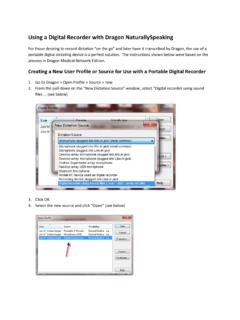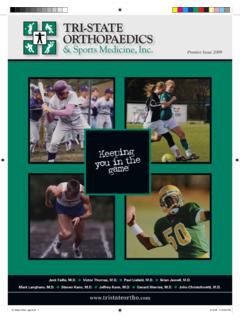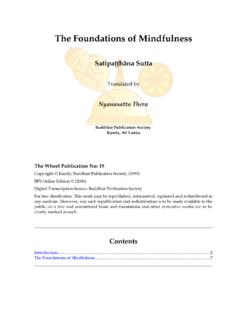Transcription of Hereditary Genius by Francis Galton
1 Hereditary Genius Francis Galton Sir William Sydney, John Dudley, Earl of Warwick Soldier and knight and Duke of Northumberland; Earl of renown Marshal. The minion of his time.. _____|_____ _____|___. | | | |. Lucy, marr. Sir Henry Sydney = Mary Sir Robt. Dudley, William Herbert Sir James three times Lord | the great Earl of 1st E. Pembroke Harrington Deputy of Ireland.| Leicester. Statesman and _____|_____ soldier. | | | |. Sir Philip Sydney, Sir Robert, Mary = 2d Earl of Pembroke. Scholar, soldier, 1st Earl Leicester, Epitaph |. courtier. Soldier & courtier.
2 By Ben |. | Johnson |. | |. Sir Robert, 2d Earl. 3d Earl Pembroke, Learning, observation, Patron of letters. and veracity.. _____|_____. | | |. Philip Sydney, Algernon Sydney, Dorothy, 3d Earl, Patriot. Waller's one of Cromwell's Beheaded, 1683. Saccharissa.. Council. First published in 1869. Second edition , with an additional preface, 1892. Third corrected proof of the first electronic edition , 2000. Based on the text of the second edition . The page numbering and layout of the second edition have been preserved, as far as possible, to simplify cross-referencing.
3 This is a corrected proof. Although it has been checked against the print edition , expect minor errors introduced by conversion and transcription. This document forms part of the archive of Galton material available at Original electronic conversion by Michal Kulczycki, based on a facsimile prepared by Gavan Tredoux. This edition was edited, cross-checked and reformatted by Gavan Tredoux. Hereditary . Genius . AN INQUIRY INTO. ITS LAWS AND CONSEQUENCES. BY. Francis Galton , , ETC. London MACMILLAN AND CO. AND NEW YORK 1892. The Right of Translation and Reproduction is Reserved ELECTRONIC CONTENTS.
4 PREFATORY CHAPTER TO THE edition OF 1892. _____ VII. PREFACE_____ V. CONTENTS _____ VII. ERRATA _____ VIII. INTRODUCTORY CHAPTER. _____ 1. CLASSIFICATION OF MEN ACCORDING TO THEIR 6. CLASSIFICATION OF MEN ACCORDING TO THEIR NATURAL. GIFTS. _____ 14. COMPARISON OF THE TWO CLASSIFICATIONS_____ 37. NOTATION _____ 50. THE JUDGES OF ENGLAND BETWEEN 1660 AND 1865_____ 55. APPENDIX TO JUDGES. _____88. STATESMEN. _____ 104. APPENDIX TO STATESMEN. _____111. ENGLISH PEERAGES. THEIR INFLUENCE UPON 130. 141. APPENDIX TO LITERARY MEN. _____ 167. APPENDIX TO LITERARY MEN.
5 _____172. MEN OF 192. APPENDIX TO MEN OF POETS. _____ 225. APPENDIX TO MUSICIANS. _____ 237. APPENDIX TO MUSICIANS. _____239. PAINTERS. _____ 247. APPENDIX TO PAINTERS. _____249. DIVINES. _____ 257. APPENDIX TO DIVINES. _____283. SENIOR CLASSICS OF 299. APPENDIX TO THE SENIOR CLASSICS OF OARSMEN. _____ 305. APPENDIX TO OARSMEN. _____309. WRESTLERS OF THE NORTH COUNTRY. _____ 312. APPENDIX TO WRESTLERS OF THE NORTH COUNTRY. _____313. COMPARISON OF RESULTS. _____ 316. THE COMPARATIVE WORTH OF DIFFERENT 336. INFLUENCES THAT AFFECT THE NATURAL ABILITY OF.
6 NATIONS. _____ 351. GENERAL CONSIDERATIONS. _____ 363. APPENDIX. _____ 377. PREFATORY CHAPTER TO THE edition OF 1892. THIS volume is a reprint of a work published twenty-three years ago, which has long been unpurchasable, except at second-hand and at fancy prices. It was a question whether to revise the whole and to bring the information up to date, or simply to reprint it after remedying a few staring errata. The latter course has been adopted, because even a few additional data would have made it necessary to recast all the tabulations, while a thorough reconstruction would be a work of greater labour than I can now undertake.
7 At the time when the book was written, the human mind was popularly thought to act independently of natural laws, and to be capable of almost any achievement, if compelled to exert itself by a will that had a power of initiation. Even those who had more philosophical habits of thought were far from looking upon the mental faculties of each individual as being limited with as much strictness as those of his body, still less was the idea of the Hereditary transmission of ability clearly apprehended. The earlier part of the book should be read in the light of the imperfect knowledge of the time when it was written, since what was true in the above respects viii Hereditary Genius for the year 1869 does not continue to be true for 1892.
8 Many of the lines of inquiry that are suggested or hinted at in this hook have since been pursued by myself, and the results have been published in various memoirs. They are for the most part epitomised in three volumes . namely, English Men of Science (1874), Human Faculty (1883), Natural Inheritance (1889); also to some small extent in a fourth volume, now about to be published, on Finger Marks. The fault in the volume that I chiefly regret is the choice of its title of Hereditary Genius , but it cannot be remedied now. There was not the slightest intention on my part to use the word Genius in any technical sense, but merely as expressing an ability that was exceptionally high, and at the same time inborn.
9 It was intended to be used in the senses ascribed to the word in Johnson's Dictionary, viz. Mental power or faculties. Disposition of nature by which any one is qualified to some peculiar employment. Nature; disposition. A person who is a Genius is denned as A man endowed with superior faculties. This exhausts all that Johnson has to say on the matter, except as regards the imaginary creature of classical authors called a Genius , which does not concern us, and which he describes as the protecting or ruling power of men, places, or things. There is nothing in the quotations from standard authors with which Johnson illustrates his definitions, that justifies a strained and technical sense being given to the word, nor is there anything of the kind in the Latin word ingenium.
10 Hereditary Genius therefore seemed to be a more expressive and just title than Hereditary Ability, for ability does not exclude the effects of education, which Hereditary Genius ix Genius does. The reader will find a studious abstinence throughout the work from speaking of Genius as a special quality. It is freely used as an equivalent for natural ability, in the opening of the chapter on Comparison of the Two Classifications. In the only place, so far as I. have noticed on reading the book again, where any distinction is made between them, the uncertainty that still clings to the meaning of the word Genius in its technical sense is emphatically dwelt upon (p.)







